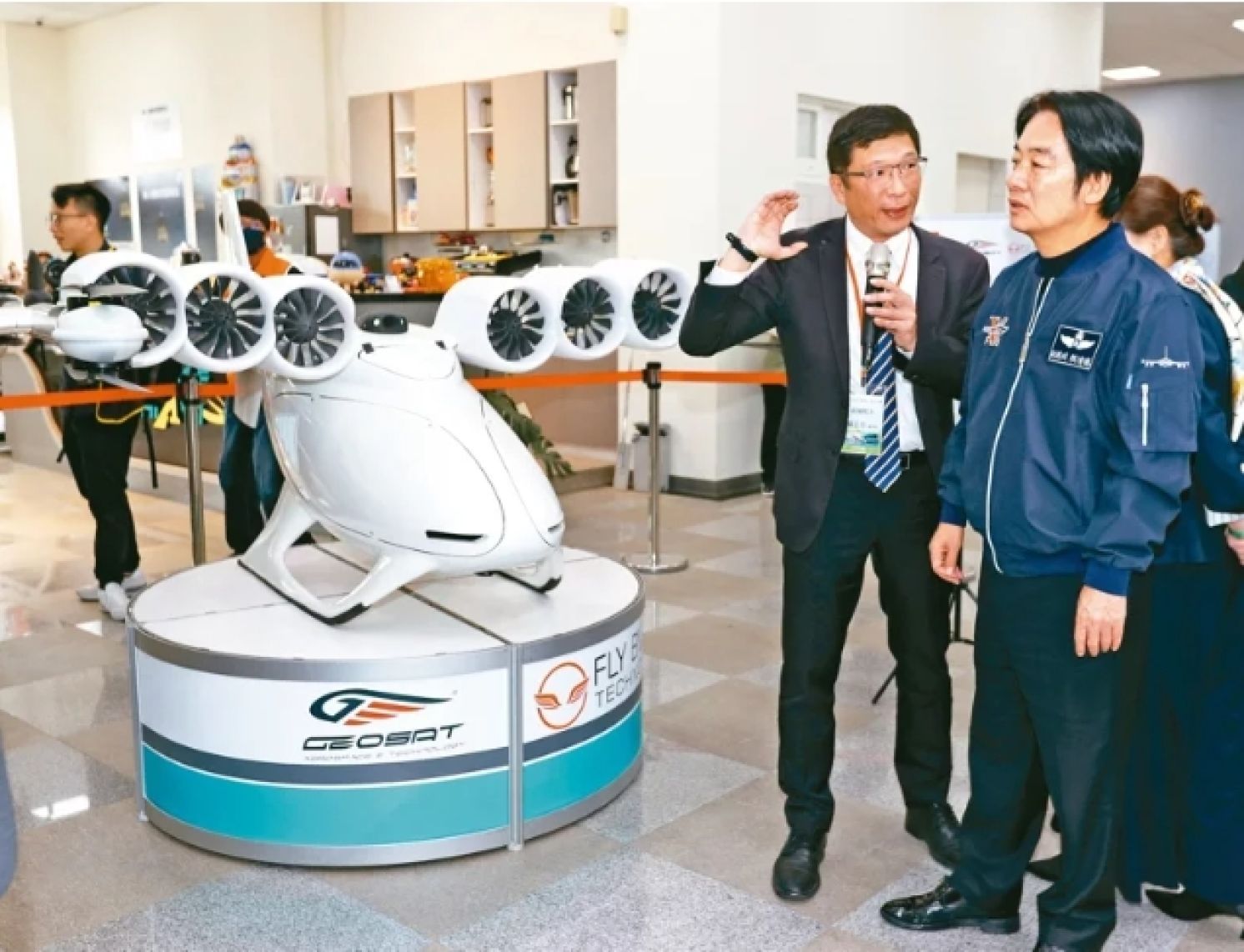
Republic of China Faces Drone Policy Vacuum
United Daily News, March 30, 2024
President-elect William Lai’s recent industry tour included a visit to the Asia UAV AI Innovation Application R&D Center in Chiayi, where a drone capable of carrying lightweight missiles with propeller-driven motors bearing the label "Made in China" caused a stir. Premier Chen Chien-jen urged everyone not to overreact. Further investigation by this newspaper reveals that as the government intensifies its focus on "banning mainland products" and "de-Sinicization," Taiwan is entering an era of drone policy vacuum.
In recent years, public sector use of drones has expanded significantly, encompassing activities such as drone formations, forest fire rescue, red fire ant control, bridge monitoring, and chemical spraying for pest control. However, with the administration of President Tsai Ing-wen’s emphasis on "de-Sinicization," in 2019, then-Premier Su Tseng-chang issued the "Regulations on Classification of Cyber Security Responsibility Levels," which placed restrictions on all products from mainland China, regardless of their origin. Drones from Shenzhen-based company DJI, previously widely used by government agencies, were stored away, prompting units to turn to American and Japanese suppliers or seek domestically produced alternatives.
In the past year, multiple government agencies have faced continuous bid failures in drone procurement. Departments such as the Agricultural Research Institute, Ministry of Agriculture (MOA); Forestry and Nature Conservation Agency, MOA; National Atomic Research Institute, Nuclear Safety Commission; Coast Guard Administration of the Ocean Affairs Council; Taiwan Power Company; and various universities have all experienced bid failures, with some unable even to complete the bidding process.
A government procurement official pointed out that in June last year, the Executive Yuan once again reiterated to all ministries that regardless of "software, hardware, or services," they should not use products from mainland China. The definition of "products from mainland China" has become overly broad. Even domestic drone manufacturers face scrutiny if they use "mainland-made components."
Another government procurement official from a different department mentioned that previously, an American-based company had won bids, but after being reported for using mainland Chinese parts last year, they hesitated to bid again. He gave examples such as casings, motors, and SIM cards, stating that if they were made in mainland China, they were not acceptable. After searching for drone manufacturers, either they were unwilling to bid or they quoted exorbitant prices.
A certain third-tier agency last year inquired with the National Institute of Cyber Security (NICS) under the Ministry of Digital Affairs about which company's drone products had been verified. They hoped for a list, but the NICS requested them to clarify on their own. It took them nearly a year to find a manufacturer, but the price was several times higher than before. Some local governments switched to service bids for drone formation shows, but after several complaints, downstream vendors were found to be using mainland Chinese drones, resulting in contract termination.